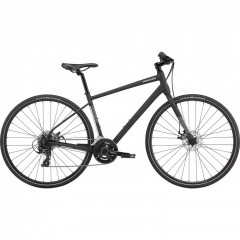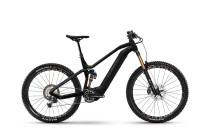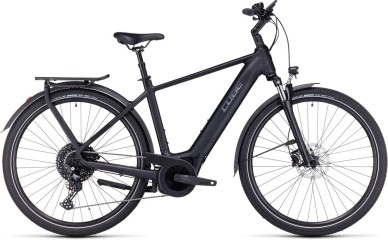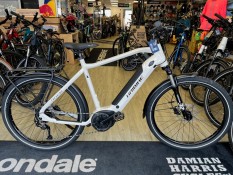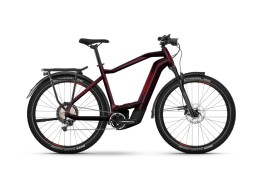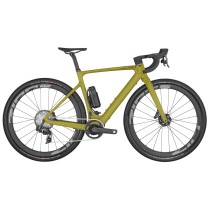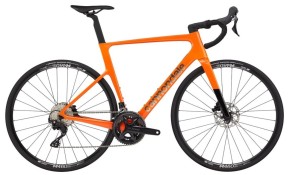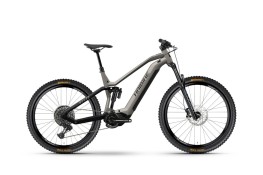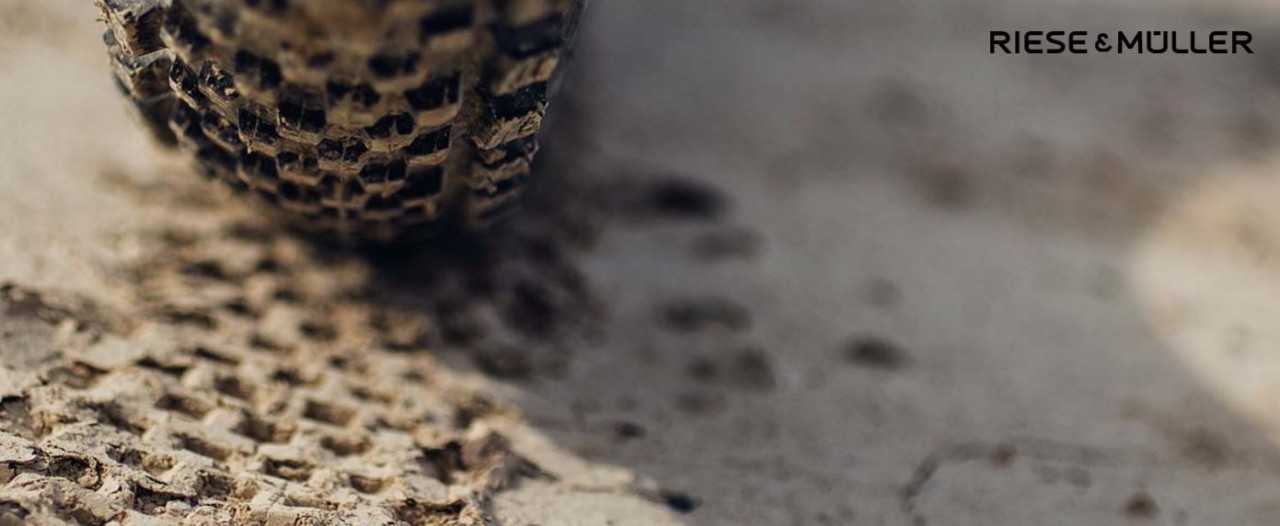
The early years: 1993 – 1996
Bike riders, engineers, inventors, friends, entrepreneurs and fathers - Markus Riese and Heiko Müller, the company’s two founders, are all of these. They met during their mechanical engineering studies at the Technical University of Darmstadt at the end of the 1980s and to a certain degree came to be very close. Since this time, they have spent their free time converting bikes and optimising them with their own designs and ideas. Purely a hobby - until Markus had a completely new idea for folding bikes in 1992. If a bike is given full suspension, these points of rotation of the suspension can also be used as points of rotation for folding. The Birdy was born. A completely new, comfortable folding bike that bears no resemblance to the folding bike of the 1970s.
In April 1993, Heiko read about the “Hesse Innovation Prize” in the newspaper. He had to produce an aluminium prototype in 10 days and night shifts. It was first christened Birdy, due to its bird-like properties produced while riding thanks to the full suspension. Then it won the special prize in the competition. This was the push that “Riese & Müller” needed to start up.
In that same year, we set up an improvised stand at Europe's two biggest bicycle trade fairs: Intercycle in Cologne and Eurobike in Friedrichshafen.
With the further development of the Birdy and our first production ideas, we went on a quest for manufacturers at Eurobike 1994. We found a bike manufacturer there who turned Riese & Müller into a real company with the words, “I want to build this bicycle!”. After June 1995, Birdy was officially available to buy in Germany, Japan and the USA.
The development years: 1997 – 2007
But the Birdy was just the beginning. A whole raft of further innovative bicycle concepts was to follow. Inspired by the boom of the mountain bike, we came to the belief that comfortable riding is only truly possible with full suspension. The slogan of the time, “Cushioned cycling”, was then implemented in every respect from that point forwards. The first models in the new comfort bike series - the Avenue and the Culture - appeared in 1997. They were joined in 1998 by the sporty Delite.
Riese & Müller is becoming a brand for discerning individuals for whom bikes play an important role in their lives. They attach great importance to quality, long service life and that special quality, such as the characteristic Riese & Müller look. Based on these principles, the product portfolio grew with further developments and concepts that were always innovative. The best examples of this are the back-sparing Equinox chair bike and the Gemini, a cargo bike with child seat at the front. For some innovations, the time was perhaps not right, but this was never a reason to question our company’s playful and youthful character.
The new mobility: 2008 – 2012
Sustainability, environmental protection and a responsible lifestyle are moving increasingly into people’s consciousness - especially in urban spaces. Mobility and bicycle mobility are changing. The Birdy folding bike fits in just as perfectly with the modern lifestyle as it did back in the day. For a safe and comfortable ride, the Control Technology with full suspension is constantly being improved.
The road to the future: 2013 to today
Modern urban society is still evolving. In terms of urban mobility, E-Bikes are becoming increasingly important and have long since shaken off the idea that they were only for pensioners.
Riese & Müller is setting new areas of focus and investing even more in innovative E-Bikes and E-Bike technologies, such as E-Cargo Bikes and compact E-Bikes. Flawless workshop service, smooth technology and superlative riding behaviour are now part and parcel of our company’s portfolio.
Our proclaimed goal is to take over as the market leader on the growth market of premium E-Bikes and folding bikes. We have, after all, always been drawn like magic to challenges.
To help us achieve this ambition, Sandra Wolf joined the management team in 2013. As a business graduate, she is the perfect complement to the engineering duo Heiko Müller and Markus Riese.
